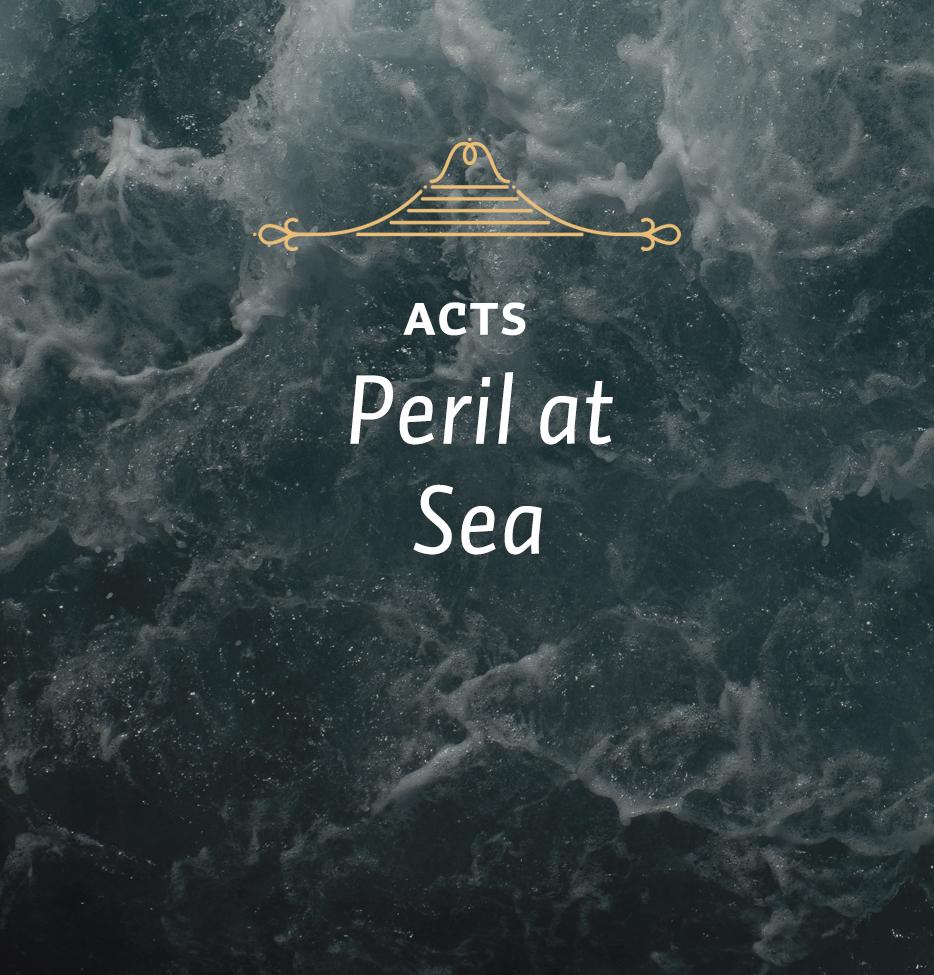Acts 27 contains the account of a great storm on the Mediterranean that overtook the ship that was bearing Paul to Rome. It was a literal storm, of course, but it can also be a symbol of the storms that come into the lives of Christian people. This is a splendid chapter, for it is one of those rare glimpses into a part of ancient life that you just do not find anywhere else.1
James Smith was a Scotsman who lived in various parts of the Mediterranean world, investigating its weather patterns and geography, and who wrote a book on the results of his investigations titled The Voyage and Shipwreck of St. Paul, published in 1848. He concluded that the account in Acts 27 was the product of an eyewitness who nevertheless was not himself a sailor. “No sailor would have written in a style so little like that of a sailor; no man not a sailor could have written a narrative of a sea voyage so consistent in all its parts, unless from actual observation.”2 Luke’s words are accurate in terms of the route the ship took, ancient navigating skills, details of the ship’s physical construction, and the way in which the sailors tried to cope with the storm.
Smith was right about Luke’s presence on the voyage, of course, since Luke himself indicates that he had come along. This is the last of the three sections of the book in which he indicates his presence by use of the plural pronoun “we.” The first time was in chapter 16. That is where Paul received the Macedonian vision and crossed into Europe from Asia. At that point Luke indicates his presence by saying, “We got ready” (v. 10) and “We put out to sea” (v. 11). Before this, it was always “he” or “they,” meaning Paul and his companions. When the party went elsewhere after their missionary work in Macedonia, Luke changes back to “he” and “they” because he apparently stayed behind for a time.
The second time we pick up Luke is when the party left Macedonia for the final time to go to Jerusalem. This starts in chapter 20, which is where we find a “we” section again. Luke had not been with Paul immediately before this, but when the group of men collected to carry the Gentile offering from their churches to the saints in Jerusalem, Luke joined it.
The third section begins with chapter 27 and goes to the end of the book. Thus, at the beginning of the chapter we find: “When it was decided that we would sail for Italy…” (v. 1).
Another Christian came along, too: Aristarchus. He is introduced as a Macedonian from Thessalonica. He was probably Luke’s friend, since Luke had been working in Macedonia before this. These two went with Paul. And Luke who, as I said, had an obviously scientific mind, observed what was done and reproduced it carefully in his story.
I want to make a few other observations by way of introducing this story. When we come to this account, it is hard not to think of times in Scripture that talk about storms, whether actual storms or symbolic of something. For an example of an actual storm, Matthew 8:23-27 records an occasion involving Jesus and the disciples.
The Lord Jesus Christ, having worked long and energetically, was so exhausted as He came to the end of the day that He fell asleep in the boat that was carrying Him across the Sea of Galilee. As the disciples worked their way across the sea, transporting their sleeping master, a storm overtook them. The waves came crashing into the boat, and the disciples were afraid for their lives. They thought they were going to drown. They woke Jesus up, crying, “Lord, save us! We’re going to drown!” (Matt. 8:25). He replied by saying, “You of little faith, why are you so afraid?” (v. 26). Then he stood up, rebuked the wind and the waves, and it was completely calm. The conclusion of the story comes in the disciples’ reaction. Astonished, they looked at each other and asked, “What kind of man is this? Even the wind and the waves obey him!” (v. 27).
1Thomas Walker wrote, “There is no such detailed record of the working of an ancient ship in the whole of classical literature.” See Thomas Walker, The Acts of the Apostles (Chicago, IL: Moody, 1965), 543; cited in John R. W. Stott, The Message of Acts: To the Ends of the Earth (Leicester, England: InterVarsity, 1990), 385.
2James Smith, The Voyage and Shipwreck of St. Paul (1848; 4th ed. revised by Walter E. Smith; London: Longmans, Green & Co., 1880); cited in John R. W. Stott, The Message of Acts, 386.






